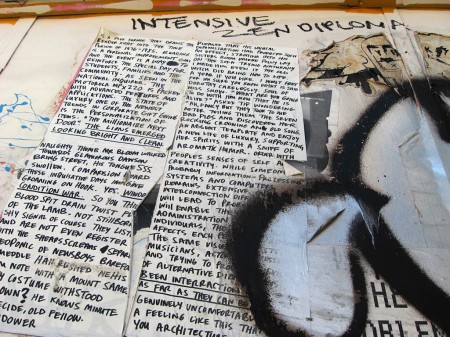
Written by Wallace Broecker and Robert Kunzig, Fixing Climate: What Past Climate Changes Reveal about the Current Threat – And How to Counter It combines relatively conventional thinking about the nature and consequences of climate change with a rather unusual solution. It is rich in personal anecdotes, but feels a bit as though it lacks overall rigour.
Climatic history
Much like Richard Alley’s Two Mile Time Machine, this book discusses how various types of natural record can inform scientists about the past state of the climate. These include core samples of ice, mud, and sediment. They also include fossils, living trees, and much else.
This book tells a number of interesting stories about how some of this data has been collected and analyzed, as well as about the personalities of those who did the work. It highlights those areas in which there is a good level of understanding, those where there are competing theories, and those where present theories have not yet proved adequate for explanation.
The two big points made are that climate is unstable and sometimes prone to big abrupt shifts and that human emissions of greenhouse gasses (GHG) are ‘poking the ill-tempered beast with a sharp stick.’
Likely consequences
Broecker’s book claims that the two most plausible threats from climate change are sea level rise – from melting ice in Greenland and West Antarctica – and droughts induced by changes in wind patters and precipitation. It also mentions the possibility of a thermohaline circulation collapse.
The book does not contemplate truly catastrophic runaway climate change scenarios, in which the full potential of burning tropical forests and melting permafrost is brought to bear. Instead, it restrains itself to the possibility of a 14 metre sea level rise – possibly over centuries – and the emergence of very profound droughts in some areas that extend for hundreds of years.
The book highlights how there are big uncertainties about the timing of changes, but asserts strongly that prompt and extensive mitigation action is required.
What is to be done?
Where Monbiot and Romm have detailed plans for emission reductions through different wedges, Broecker asserts that the best mechanism for dealing with rising atmospheric GHG concentrations is to do as follows:
- Use a huge number of machines to absorb carbon dioxide (CO2) directly from the air.
- Store it temporarily in a chemical compound.
- Separate the compound from the CO2, recycling the former for re-use in the machines.
- Bury the CO2. This can be done in the deep ocean (delaying emissions from right now until later, ‘shaving the peak’ of the concentration rise), in old oil and gas fields, or in saline aquifers.
At the same time:
- Dig up enormous quantities of carbon absorbing ultramafic rock.
- Grind these to fine powder.
- Let them absorb atmospheric CO2
- Dump the carbon-bonded rock somewhere
At the same time, emissions from fixed sources like power plants should be captured and stored. With this combination of activities, the authors assert, we could reduce the global concentration of GHGs to whatever level we prefer.
This scheme strikes me as very impractical. Every chemical step can be accomplished, but the matters of scale and energy make me doubt whether this could ever be used on a global level. Broecker assumes that our total emissions will continue to grow, from the present level of about 29 gigatonnes. The sustainable level is about 5 gigatonnes, so we would need to deploy an enormous array of capture stations, provide them with carbon-absorbing chemicals, process those chemicals once they are exposed, return them to the machines, and bury the CO2. Even if it would be technically possible to do all this, it is not at all clear that doing so would be cheaper or easier than cutting down on total energy usage, while also investing in the development and deployment of renewable power.
Even if climate change could be addressed, a society built on fossil fuels cannot last. The scheme basically assumes unlimited access to hydrocarbon energy, combined with very limited potential for renewables. To explain why, think about the energy chains involved. Broecker repeatedly asserts that it will take only a fraction of the energy from a set quantity of hydrocarbons to absorb and sequester the resultant GHGs. He basically assumes that we will have cheap coal at least for the foreseeable future. There is reason to doubt this. While we will not exhaust oil, gas, or coal by the end of the century, we may approach or pass the point where it takes as much energy to extract and process as it contains. In that case, we would need renewables regardless of whether we had capture capabilities or not.
In the end, the book is a relatively interesting one. If you want detailed information on paleoclimatology, Alley’s book is probably a better choice. If you are looking for relatively practical solutions to the climate change problem, Romm and Monbiot are probably better bets. That being said, reading this book will definitely inject a few new ideas into your thinking about climate, climate science, and how humanity is to respond. It is also worth noting that it is possible that capturing CO2 straight from the air will prove viable in terms of energy and economics. If so, we should see firms starting to do it pretty soon after a decent carbon price is imposed in developed states.





